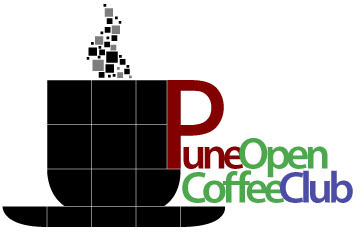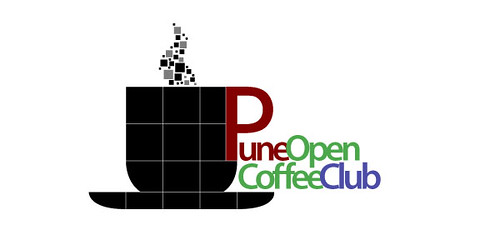 Last Saturday, the Pune OpenCoffee Club invited 4-time entrepreneur Nickhil Jakatdar to give advice to Pune’s entrepreneurs on the DOs and DONTs for startups. Shashikant Kore, co-founder of Pune-based startup bandhan.com has written up this report of the meeting
Last Saturday, the Pune OpenCoffee Club invited 4-time entrepreneur Nickhil Jakatdar to give advice to Pune’s entrepreneurs on the DOs and DONTs for startups. Shashikant Kore, co-founder of Pune-based startup bandhan.com has written up this report of the meeting
Chetan Pungalia, co-founder of Kaboodle, introduced Nickhil Jakatdar. The one line introduction was “A guy who sold 3 companies with cumulative valuation of 9-digit (a few hundred million) US dollars.”
Nickhil did his PhD from Berkeley, and around the end of his PhD, he and a friend decided to start a startup – since everybody else was doing so. They went ahead and created a company (paying $2000 to a lawyer by maxing out 4 credit cards) even though they had no idea what they would do.
They toyed with many dotcom ideas for few months, but many of the companies were already working on those ideas. They finally decided to do something in the area they knew extremely well – semicondutors. They decided to convert their PhD thesis in the company. The topic of PhD thesis itself had come to them during their internship. They talked to AMD about the product. The company exec told they might be interested in it. But being an optimistic entrepreneur, they heard it a resounding Yes. They built the prototype in next three months and went back. When asked about the price, they thought they should charge $4,000 as that was the expense they had incurred till then. After listening to contradictory opinions from friends, he decided to put a price tag of $25,000. The thinking behind this approach was to quote high and get a No rather than saying Yes and not knowing if it was underpriced. As it turned out, even $25,000 was a low price and the company asked for two units.
Later, they secured $300k VC funding for the company. But, they decided to stay small and hired only one person in 14 months. This was when other companies were hiring ten employees every week and going public. When the downturn hit, their approach got a nod of respect. Just before the downturn, they did raise another round of $3 million. They hired a professional CEO, with track record of multiple successful startups, to take the company to the next level. Initially, they were very impressed by him, but within six months some of the activities of CEO didn’t come across as clean. He was building his another bigger company of his own while he still was CEO of Timbre. At a board meeting, CEO proposed acquisition of Timbre by his company. The board gave Nickhil choice of either merging with that company and be part of his success, or run on his own with a high chance of bankruptcy. Nickhil had already assembled a team with a promise of being together in success and failure. He decided to run the company on his own as he wanted to face his team without any guilt. At the end of the meeting CEO was out of the company. The lesson here being doing the right thing irrespective of the consequences.
Over next few months, they had a team of 10 at the company with revenues of $300k. Some companies got whiff of Timbre from their customers. They offered to buy Timbre. Nickhil and team declined the offer saying they want to continue on their own. The companies got back saying there must be a price at which he is ready to sell. After a week of thinking they presented their plan – more than $100 million in cash, independence for the company, keeping all the employees, stock options in the company to employees and other terms. Everybody laughed at this proposal. And yet, in the next week, 2 of the 3 companies got back with a Yes and they inked the deal with one of them.
He stayed with the company for next 3 years as he enjoyed working with company. He stayed with the company because every day was exciting. If you are excited about your work in the morning you are at the right place. After 3 years, since he thought he was merely keeping things going instead of innovating, he decide to move.
“Be passionate about what you are doing. The cool-to-do things don’t fly. When you are running a startup, you will hear bad news on 60% of days. If you are passionate, you will face heat and not throw in the towel. If you are not committed, you will be out.”
Nickhil also stressed importance of having big goals. It’s not same as being unrealistic. The worst thing that could happen to your startup is failure. But there is always a job to go back to. He said out of 100 wannpreneurs only 1 starts up. Everbody thinks they have the next idea but very few take the plunge. The ideas are plenty, but it’s the execution that counts. He briefly mentioned about their neighbours, a startup by Stanford graduates. While Timbre was successful, the neighbours were even more successful. That company is Google.
He cited poor execution and poor chemistry in the team as major reason for failures.
On execution front, he suggested that startup should put together a conservative business plan. Since entrepreneurs tend to be optimistic, multiply time to market by two, costs by two and devide the revenue by two. That would be real conservative estimate. A startup has only credibility to talk about. And failure to meet the expectations puts a dent on credibility. So, startup must be able to deliver on its promise.
On building the team with right chemistry, he said hiring early employees is “tricky.” People are good at cracking interviews. Hence interview need to be rigourous to weed out those who are not passionate about the startup. They put together a hiring process to ensure only the people with right attitude are hired. First interview is on phone where Nickhil offers reasons not to join the startup saying its risky and might fail. If the candidate is still interested technical rounds are conducted to check the competence. The third round is a presentation by candidate on a topic of mutual interest. The team attending presentation is diverse so variety of questions are tossed. If the candidate handles the team nicely, he/she is a right fit. The fourth round is introducing candiate to each member of the team to see if anybody spots a red flag. In the final round he offers candiate two options – high salary with low options and low salary with option heavy package. Those who prefer salary are rejected. In one year of running current startup, they don’t have any attrition till the date. That is a proof of their hiring process being strong.
In the Q&A session, a question about his evaluation criteria for various ideas came from audience. He said, all ideas sound great at the beginning and holes appear only after some time. It’s important to have a passionate and committed team.
How did he pitch the VCs was the next question. For latest startup, Vuclip, his pitch consisted of five slides – market size, demo of the product, competitive landspace, their expenses and revenue forecast. On revenue slide he said they will figure out ways to make money. There was an appendix of 15 slides with more data.
How do you convince VC that you can do it better than others? He cited example of Timbre, where two big players were working on the same idea. But, those companies did not want to pursue it aggressively as it would have cannibalized their own product. This conflict of interest meant Timbre would be able to do it better than competition.
About the Author – Shashikant Kore
Shashikant is a co-founder of Pune-based startup Discrete Log Technologies. In the first week of November 2008, they launched their first product Bandhan.com, a matrimony search engine. Previously, Shashikant has worked for internet startup Webaroo, and for storage software company Veritas.

![Reblog this post [with Zemanta]](http://img.zemanta.com/reblog_b.png?x-id=96a512c6-ec8a-4758-91f8-cff7aa072d15)



![Reblog this post [with Zemanta]](http://img.zemanta.com/reblog_b.png?x-id=20f62a47-2591-405c-983b-65537d0f504d)

![Reblog this post [with Zemanta]](http://img.zemanta.com/reblog_b.png?x-id=e2467598-0a43-4be1-93fc-ecb3ee03b71e)


![Reblog this post [with Zemanta]](http://img.zemanta.com/reblog_b.png?x-id=1801f1ba-f66a-46d0-81ed-4210738d3b8e)
![Reblog this post [with Zemanta]](http://img.zemanta.com/reblog_b.png?x-id=fa5e9fe1-8420-44af-b3ac-c753868f7e2f)

![Reblog this post [with Zemanta]](http://img.zemanta.com/reblog_b.png?x-id=fe808f0a-0627-4bfb-addb-8f5798de917d)
 Last Saturday, the
Last Saturday, the ![Reblog this post [with Zemanta]](http://img.zemanta.com/reblog_b.png?x-id=af5878f7-aa83-4b20-a1bf-cdff631df669)

![Reblog this post [with Zemanta]](http://img.zemanta.com/reblog_b.png?x-id=64739cbe-1eea-42f9-8261-a492e35ac0b6)